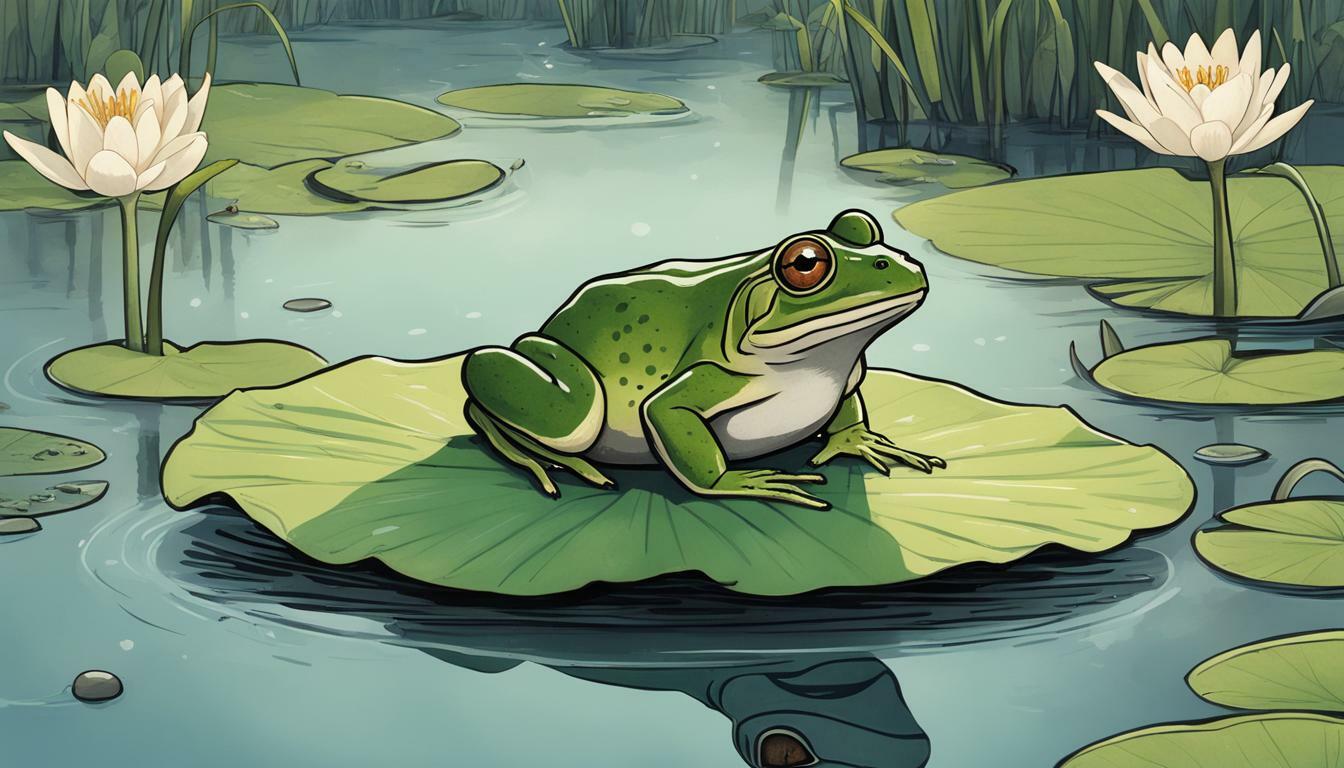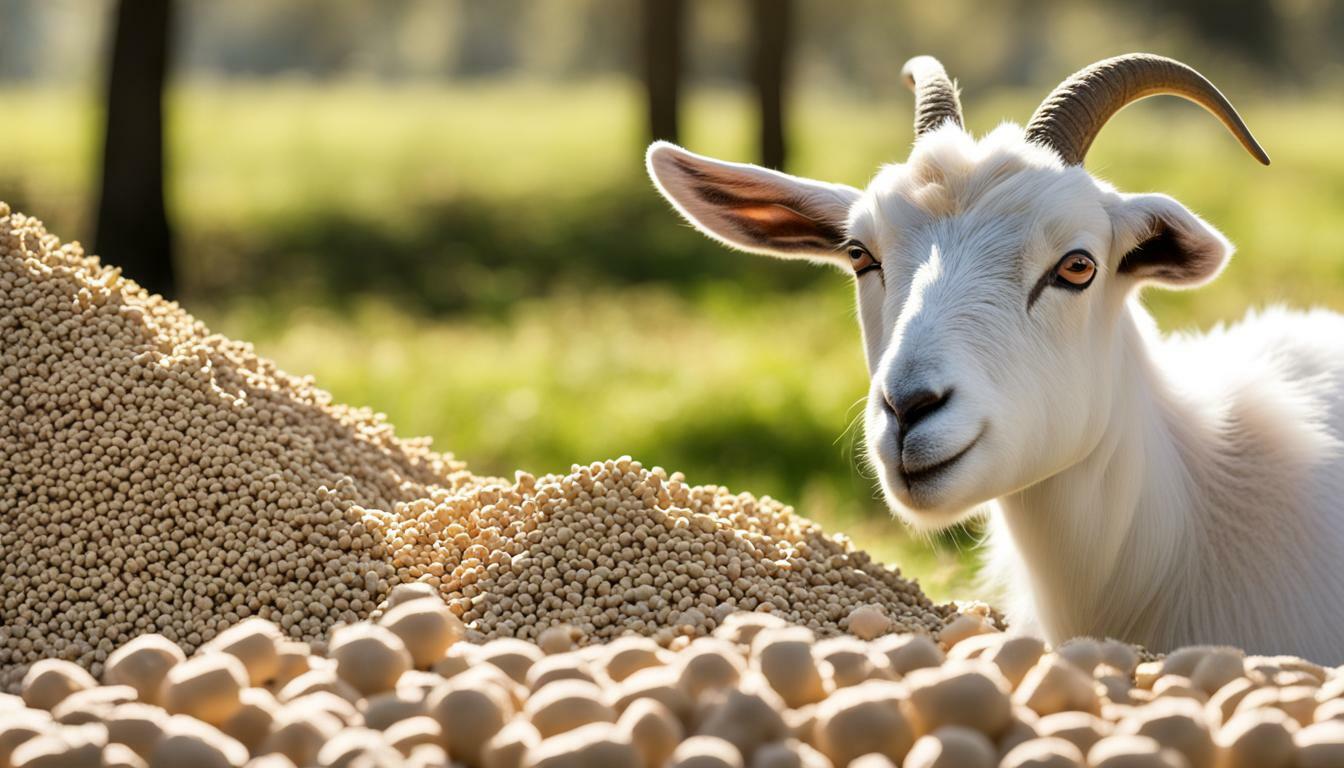Are Bullfrogs Poisonous? Unveiling the Truth

Table of content:
Bullfrogs are fascinating creatures that are found in many parts of the world. However, there is a common misconception that these amphibians are highly poisonous and pose a significant health risk to humans.
In this section, we will explore the truth behind this myth and examine the potential health risks associated with bullfrogs. We will delve into the concept of bullfrog toxicity and examine the presence of bullfrog venom. By the end of this section, you will have a better understanding of the potential dangers of bullfrogs and how to handle them safely.
Understanding Bullfrog Toxicity
Now that we’ve established the question of whether bullfrogs are poisonous, let’s take a closer look at bullfrog toxicity. It’s important to understand the toxins that may be present in these amphibians to assess any potential risks.
What toxins do bullfrogs have?
Bullfrogs have various toxins, including skin secretions and bacteria. The toxins in their skin secretions can cause skin irritation or allergic reactions in some people. Certain bacteria found in bullfrogs can also cause infections, such as salmonella.
What are the effects of bullfrog toxins?
The effects of bullfrog toxins can range from mild skin irritation to more serious health issues, such as infections like salmonella. It’s important to note that the severity of the effects depends on the individual’s reaction, as well as the amount and type of toxins present.
Are bullfrogs safe to handle?
Bullfrogs can be safely handled, but caution should be exercised. It’s important to wash your hands after handling a bullfrog or any surface that has come into contact with a bullfrog. This is especially important if you plan on handling other animals or preparing food. Additionally, it’s important to avoid touching your face or mouth after handling a bullfrog. If you experience any skin irritation or allergic reactions, it’s best to seek medical attention.
Assessing the Health Risks of Bullfrogs
While bullfrogs are generally safe for humans, there are some potential health risks to be aware of. One primary concern is the presence of harmful bacteria or parasites that may be present on the skin of bullfrogs.
It is important to thoroughly clean and cook bullfrogs before consumption to reduce the risk of infection or illness. Additionally, it is recommended to avoid consuming the skin of bullfrogs, as this is where bacteria and parasites may be most concentrated.
Another potential health risk of bullfrogs is the possibility of allergic reactions. Some individuals may be allergic to bullfrog meat or saliva, which could manifest in symptoms such as skin rash, difficulty breathing, or gastrointestinal distress.
Lastly, it is important to avoid handling bullfrogs with bare hands if possible. Handling bullfrogs with gloves or a protective barrier can reduce the risk of any harmful substances or bacteria being transferred to the skin or eyes.
Bullfrog Venom: Fact or Fiction?
When it comes to bullfrogs, there is often confusion surrounding the concept of bullfrog venom. Some people believe that bullfrogs possess venomous properties, while others claim that this is a myth.
So, what is the truth about bullfrog venom? The answer is that it’s complicated. While bullfrogs do possess certain toxins, they are not venomous in the traditional sense.
When threatened, bullfrogs may secrete a white, sticky substance from their skin. This substance is not technically venom, but it can cause irritation or an allergic reaction in humans who come into contact with it. Some individuals may also be more sensitive to the toxins present in bullfrog skin, leading to a heightened reaction.
Are Bullfrogs Safe to Handle?
Overall, bullfrogs are generally safe to handle as long as appropriate precautions are taken. It is important to avoid touching your face or eyes after handling a bullfrog, as this can lead to irritation or infection. It’s also crucial to wash your hands thoroughly after handling a bullfrog to prevent the spread of any potential bacteria.
If you are planning to handle a bullfrog, it’s always a good idea to wear gloves to minimize any potential risks. This is especially important if you have any open cuts or wounds on your hands.
In conclusion, while bullfrog venom may be somewhat of a myth, it’s important to exercise caution when handling these amphibians. With appropriate precautions, however, you can safely enjoy the unique experience of interacting with bullfrogs.
Safe Handling Practices for Bullfrogs
If you plan to handle bullfrogs, it is important to take appropriate precautions to minimize any potential risks. These guidelines will help keep you and the bullfrogs safe:
- Wear protective gloves when handling bullfrogs to avoid direct contact with their skin.
- Wash your hands and any exposed skin thoroughly with soap and water after handling bullfrogs.
- Avoid touching your face or mouth while handling bullfrogs.
- Do not handle bullfrogs if you have open cuts or sores on your hands.
- If you plan to consume bullfrogs, make sure they are thoroughly cooked to minimize the risk of bacterial contamination.
By following these safe handling practices, you can minimize any potential risks associated with bullfrogs. Remember to always exercise caution when handling or consuming any wild animals.
Conclusion
After exploring the question of whether bullfrogs are poisonous, we have discovered that while they do possess certain toxins, they are generally not considered highly dangerous to humans, as long as appropriate precautions are taken.
It is important to exercise caution when handling or consuming bullfrogs and to follow safe handling practices. This includes wearing gloves and washing your hands thoroughly after handling bullfrogs and avoiding consuming them unless they have been properly cleaned and prepared.
Overall, with proper knowledge and care, bullfrogs can be enjoyed without significant health risks. However, it is always important to err on the side of caution and take appropriate measures to ensure the safety of both yourself and the bullfrogs.
Welcome. I’m Adreena Shanum, the proud owner of this website, and I am incredibly passionate about animals, especially poultry. I founded adreenapets.com as a labor of love, stemming from my desire to share my knowledge and experiences with poultry enthusiasts worldwide.




